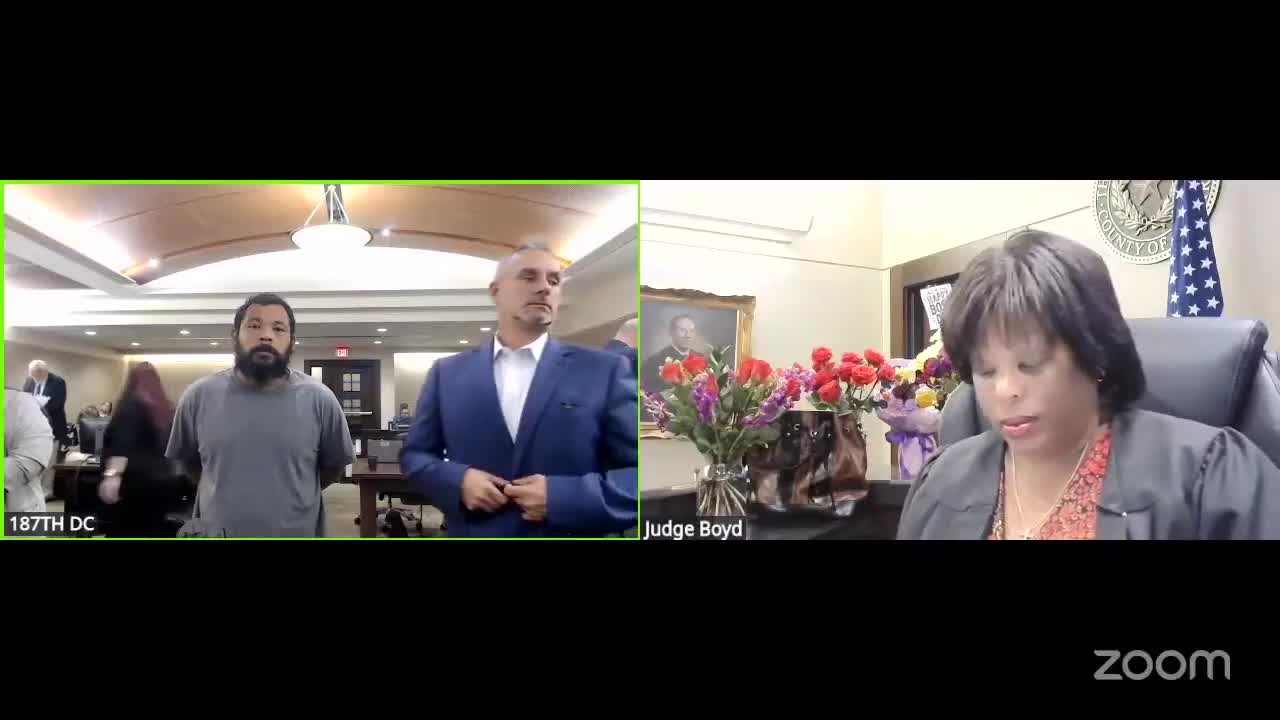Judge Boyd Suspends 2-Year State-Jail Term, Probates 4 Years, Refers Luis Flores to Drug Court
Get AI-powered insights, summaries, and transcripts
Subscribe
Summary
Following a TAP evaluation that recommended inpatient treatment, the court sentenced Luis Flores to a 2-year state-jail term suspended and probated for four years with a referral to felony drug court, ignition interlock, DWI intervention and community-service restitution.
In State v. Luis Flores the court accepted the defendant’s plea and imposed a suspended state-jail sentence with an intensive set of treatment and supervision conditions.
Prosecutors told the court they had received the TAP (treatment assessment) evaluation recommending inpatient treatment. The judge explained that, given the DWI with a child and a major accident noted in the record, inpatient treatment was likely necessary. The court ordered a two-year state-jail sentence suspended and probated for four years, with 10 days in the Bexar County Jail as a condition of probation and a referral to felony drug court. The court ordered that if the defendant is not accepted into felony drug court, the court will institute SADF (State-approved inpatient alternative) placement consistent with the TAP recommendation.
Additional conditions included ignition interlock for half the term, DWI intervention programs (VIP/Live), a two-year license suspension, 200 hours of community-service restitution (100 waived upon completion of parenting class), a $60 restitution charge to DPS for testing and monthly field visits for an initial six months. The judge reiterated that admission to felony drug court requires honesty during screening and that probation and drug-court rules would govern eligibility.
At the hearing the defendant described family hardship: his wife is legally blind and he is the sole household provider. The judge acknowledged the family circumstances but stressed that the defendant’s alcohol use posed safety risks, citing the police report and the potential for severe harm in future incidents.
Probation was ordered to arrange expedited felony drug-court screening; the judge asked probation to request an interview within the week and to notify the court if an expedited referral is needed.
Luis Flores will remain in custody pending the administrative steps required for the felony drug-court referral and the implementation of the sentence conditions.
